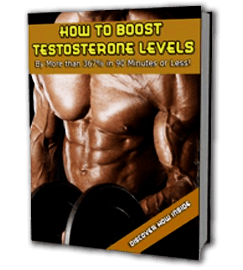(Article Medically Reviewed By Dr. Zach Hyde)
I have a warning for you about a supplement called Astaxanthin.
Don’t take it…
For the same reason you shouldn’t take beta carotene inisolation…
Because carotenoids, like beta carotene, astaxanthin, lycopene,etc…
When taken taken solo have a tendency to do bad things to people.
For example…
In one study, 18,000 smokers were given 30 mg beta carotenefor four years.
And things got ugly…
The volunteers given the supplement had a 28 percent higher riskof developing lung cancer….
And a 17 percent higher risk of death from all causes.
Needless to say, this study was halted early…
Then the smokers were advised to do what they should have done in the first place.
But what about astaxanthin?
It’s a carotenoid too. And like other carotenoids it gives things color…
Beta carotene makes your carrots orange. Lycopene your tomatoesred….
Astaxanthin your salmon pink.
And getting these carotenoids from food is a good thing…
Because nature has controls in place so you don’t take too much.
But when you isolate this stuff. Put it in a pill. And package it up…
Things change. Sometimes for the worse…
The beta carotene study proved this.
And I already knew this information when I started takingastaxanthin myself early last year.
So I should have known better….
But the talking heads were all over it (mercola, dr oz, etc…) so I was getting tons of emails.
And if you’ve been on this list for a while…
You know as well as I do that I still bite it every once in a while…
And I bit it with this supplement.
The promise of never sunburning again was just too tempting.Because I have a love affair going on with the sun.
But soon after I started taking it…
Whispers of man-boob issues starting popping up in the blogesphere.
So the experiment stopped. I needed to do more research.
Then Mercola responded with this…
There is NO steroidal activity. It does not enter in any mechanismpathway for the synthesis of steroids.
So I cautiously started the experiment back up again…
And paid very close attention to my nipple sensitivity. Size. Pufffactor.
And things went fine for about a month….
Until I got out of the shower and saw two inflamed nipples staring back at me in the mirror one morning.
And when I touched them they were sensitive. Just like my wife’sare at certain times of the month.
So in my case there Was some steroidal activity (sorry mercola).
And that activity spelled the word estrogen with a capitol E in my case.
So my advice to you is, don’t mess with this supplement.
Ladies may have a hall pass. But I wouldn’t know unless I testedit on my wife….
But she’s already in a good hormonal place…
And I’m not going to mess around with that, for obvious reasons.
So here’s your best bet…
Get Your Carotenoids From Food.
Because when you do it this way. There’s no penalty…
No risk.
And life is already risky enough, right?
Mark
UPDATE!
We’ve updated this article with more detail for those looking to dig deeper into the subject.
Let’s go…
Astaxanthin and Estrogen Part 2
We talk a lot about the dangers of pharmaceuticals here.
We also discuss how Mother Nature has been extremely generous in providing us with plant and animal products that we can use to treat many conditions and diseases.
But not everything “natural” is essentially good for everyone.
In this article, we’re going to talk about astaxanthin, which is found in many of the foods we love.
Though it has been increasingly recommended to treat a number of conditions, research states that this supplement may not be all it’s cracked up to be.
What is Astaxanthin?
Reading the Wikipedia page for astaxanthin requires at least a Ph.D. in chemistry.
So, to keep things simple, I’ll merely refer to it as a type of chemical compound known as a keto-carotenoid.
Carotenoids are naturally occurring pigments produced by plants, algae, bacteria, and certain fish.
Perhaps the best-known example is carotene, which gives a characteristic orange hue to – you guessed it – carrots.
So, yes, astaxanthin is found naturally in many of the foods we eat. However, it has grown increasingly popular as a supplement.
This is because, according to many studies, it is effective at treating conditions ranging from Parkinson’s disease and high blood pressure to dyspepsia, infertility, and diabetes.
It is also present as a food coloring in farm-raised fish, and as a component of certain workout powders.
Why Should Astaxanthin Be Avoided?
Looking at the information above, you might wonder what the big deal is.
After all, astaxanthin seems to have some pretty solid health uses.
While this is true, you also need to understand the way carotenoids actually interact with your body.
For instance:
It May Increase (Not Decrease) Cancer Risk
In one random study, 18,000 tobacco smokers were given 3 mg. of carotene for four years.
This was because some members of the chemical family (including astaxanthin) have shown some ability to prevent cancer growth.
However, in this particular case, 28% of those receiving the supplement were soon found to have a higher risk of developing lung cancer.
The study was quickly abandoned, and smoking cessation was recommended instead (as it should have been in the first place).
It May Upset Your Estrogen Balance
Let’s look again at some of the conditions astaxanthin has been proven to treat.
As you’ll probably notice, included on this list are a number of “Big Pharma boogeymen” – those ailments that are frequently used as an excuse to sell countless pills, supplements, and medications.
- High cholesterol
- Stroke
- Heart disease
- Diabetes
- Infertility
- Rheumatoid arthritis
- Wrinkles and sun damage (when applied directly to the skin)
As you might have guessed, when all this information came out, the medical “talking heads” were all over it.
From Oz to Mercola to Oprah, suddenly astaxanthin was everywhere. Even I started taking it when it was found it might prevent you from ever getting a sunburn again (which is yet to be corroborated).
But it wasn’t long after I started supplementing with astaxanthin that the blogosphere started erupting with rumors of “man boobs.”
Dr. Mercola must have gotten the memo, because he responded by saying that there was no evidence of steroidal influence in anyone taking the supplement.
This was all great news until I got out of the shower one day to see a pair of puffy, swollen nipples staring back at me.
No steroidal activity?
Then why did I look and feel just like my wife during her time of the month? That’s when the research started to come out.
For example, one 2017 study on bovine cells found that astaxanthin was actually instrumental in increasing progesterone production.
If you remember, progesterone is the hormone that regulates pregnancy and the menstrual cycle in women.
Now, if you visit the WebMD page for astaxanthin, you’ll find this all laid out for you in the “side effects” section.
Apparently, taking too much of the supplement can hinder the production of an enzyme called 5-alpha-reductase, which helps testosterone change into DHT.
This is associated with reduced libido, erectile dysfunction, and, yes, male breast growth.
Sorry, Dr. Mercola – the science is officially in, and you were wrong.
What About Dietary Astaxanthin?
As I mentioned, astaxanthin is present in a lot of veggies, as well as fish like salmon and shellfish like shrimp.
Furthermore, other carotenes can be found in loads of delicious foods. Doesn’t that put us at risk of the problems listed above?
Not really.
You see, when you get essential nutrients from food, your body has fail safes in place to prevent you from getting too much.
Rather than use all of the astaxanthin simply because it’s in your system, your body will only take what it needs and pass the rest along.
So, unless you’re living on a diet of shrimp and carrots, you’ll likely be just fine.
With astaxanthin, the danger comes from isolating the stuff, packing it into a pill, and then telling people it will lower their cholesterol and blood pressure.
It might, sure. However, it may also increase your risk of cancer or lead to the development of undesirable chest ornamentation.
In my opinion (and experience), why take the risk?


